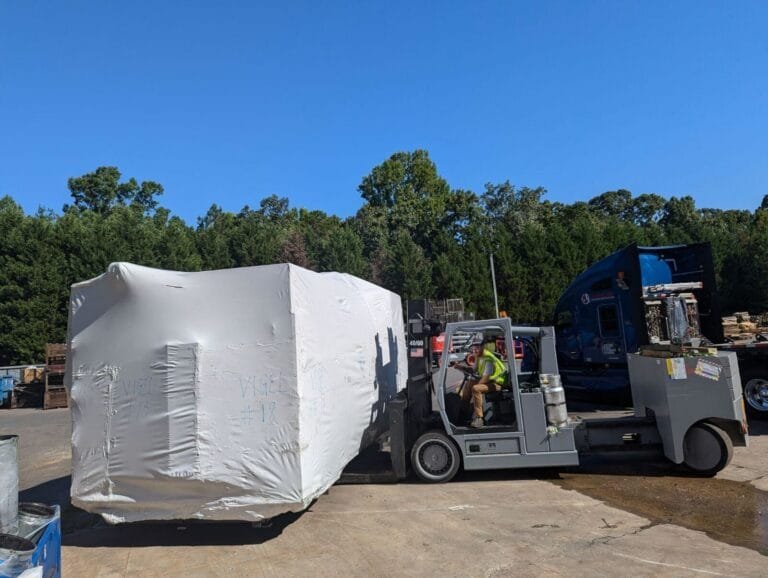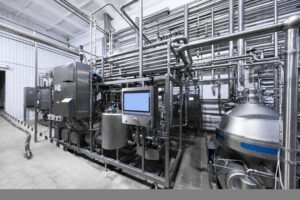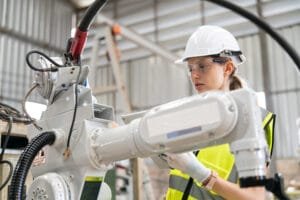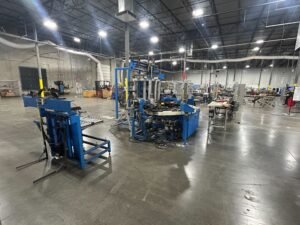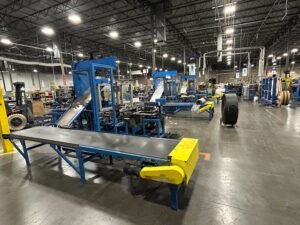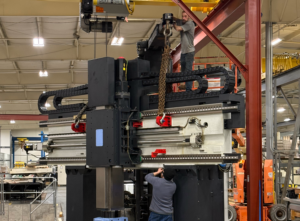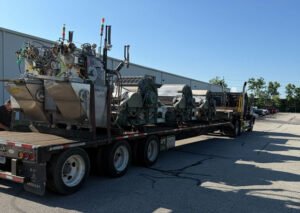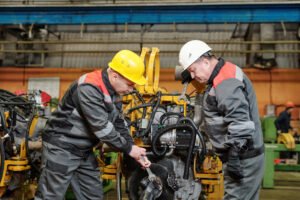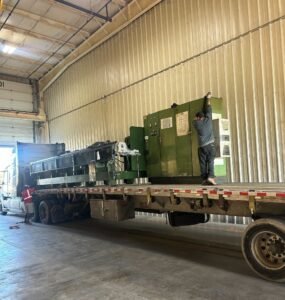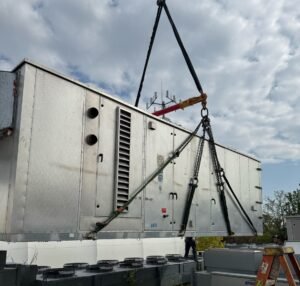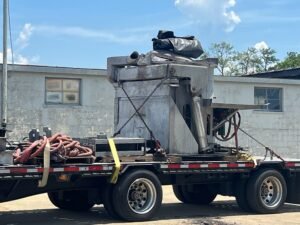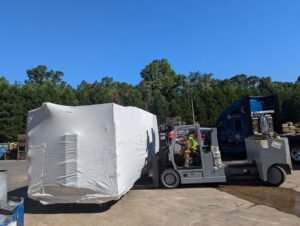In today’s fast-paced industrial environment, the transportation of heavy machinery and equipment plays a crucial role in sectors such as construction, mining, manufacturing, and energy. The complexity and scale of moving oversized, high-value machinery require more than standard transport methods. Specialized machinery transport equipment is designed to address the unique challenges associated with these tasks, ensuring that assets reach their destinations safely, efficiently, and cost-effectively. This article delves into the many advantages of using specialized machinery transport equipment, examining its impact on safety, operational efficiency, cost savings, regulatory compliance, technological integration, and even environmental sustainability.
By tailoring transport solutions to the specific needs of heavy machinery, businesses can significantly reduce risks associated with damage, delays, and regulatory breaches. The evolution of specialized equipment has been driven by the demands of an industry where every minute of downtime translates into lost revenue. With innovations in design and technology, modern machinery transport equipment not only meets but exceeds the rigorous standards required in today’s competitive markets.
Below, we explore the primary benefits of adopting specialized machinery transport equipment through several key sections.
Enhanced Safety and Equipment Protection
One of the most significant advantages of specialized machinery transport equipment is the heightened level of safety it offers. Heavy machinery, such as cranes, excavators, and bulldozers, represents a substantial financial investment. The risk of damage during transit can be financially devastating, making safety a top priority.
Robust Engineering and Design
Specialized transport equipment is engineered with robust materials and advanced design features that ensure stability during loading, transit, and unloading. These designs include reinforced frames, adjustable tie-down systems, and precision-engineered hydraulic lifts, all of which work in tandem to minimize movement and vibration. This robust construction not only protects the machinery from physical damage but also safeguards the personnel involved in the transport process.
Secure Load Management
Another critical aspect is load management. Specialized equipment comes equipped with custom-fit restraints and securement systems tailored to various types of machinery. These systems are designed to distribute weight evenly across the transport vehicle, reducing the likelihood of shifting loads or structural stress. The result is a smoother, more secure journey that minimizes the risk of accidents and subsequent damage.
Weather and Road Conditions Adaptability
Specialized transport vehicles are built to withstand diverse weather and road conditions. Whether facing heavy rains, extreme heat, or rough terrain, these vehicles maintain structural integrity and operational reliability. The combination of advanced suspension systems, all-terrain tires, and weather-resistant materials contributes significantly to overall safety and protection.
Improved Efficiency and Time Savings
Time is money in the realm of heavy machinery transport. Specialized equipment dramatically enhances efficiency by streamlining the entire relocation process—from planning and loading to transit and unloading.
Streamlined Loading and Unloading
Unlike generic transport solutions, specialized machinery transport equipment is designed with dedicated loading ramps, adjustable platforms, and automated systems that reduce manual handling. This not only accelerates the loading and unloading processes but also minimizes the risk of human error, leading to faster turnaround times.
Optimized Route Planning
Modern specialized transport systems often integrate with advanced route planning software. These tools assess road conditions, traffic patterns, and legal restrictions related to oversized loads, ensuring that the most efficient and safest routes are selected. With improved route planning, companies can avoid delays caused by detours or regulatory checkpoints.
Reduced Downtime
In many industries, downtime can lead to significant revenue losses. By ensuring that machinery is moved swiftly and safely, specialized transport equipment helps minimize operational interruptions. This is particularly critical for projects with tight deadlines, where even minor delays can cascade into larger scheduling conflicts and increased costs.
Integration with Project Management
Many specialized transport solutions now include digital interfaces that integrate seamlessly with broader project management systems. This connectivity enables real-time updates on shipment status, vehicle location, and estimated arrival times, allowing for better coordination and resource allocation at both the departure and destination sites.
Cost-Effectiveness and Return on Investment
Investing in specialized machinery transport equipment may appear costly at first glance; however, the long-term financial benefits are significant. These benefits not only include direct cost savings but also an improved return on investment (ROI) over time.
Minimizing Damage-Related Expenses
When heavy machinery is transported using generic equipment, the risk of damage increases. Damage repair, replacement, or even delays in production can quickly add up to substantial costs. Specialized equipment minimizes these risks by ensuring that machinery is securely transported, thereby reducing the likelihood of accidents and subsequent expenses.
Operational Efficiency and Reduced Labor Costs
The automation and precision built into specialized machinery transport equipment reduce the need for extensive manual labor. This efficiency not only speeds up operations but also lowers labor costs associated with prolonged loading and unloading processes. In addition, the reduction in manual handling minimizes the risk of workplace injuries, further decreasing potential compensation and liability expenses.
Fuel and Maintenance Savings
Specialized transport vehicles are often optimized for fuel efficiency, with design elements that reduce drag and enhance engine performance. Moreover, these vehicles are built for durability, meaning lower maintenance costs over their operational lifespan. These savings contribute to a more favorable cost-benefit ratio and a quicker ROI for businesses investing in specialized transport solutions.
Enhanced Asset Longevity
By reducing wear and tear during transit, specialized machinery transport equipment extends the operational life of the heavy machinery. Prolonged asset life translates into fewer replacement costs and enhanced overall productivity, making it a wise long-term investment.
Regulatory Compliance and Risk Mitigation
Transporting oversized and heavy machinery involves navigating a complex web of local, national, and sometimes international regulations. Specialized machinery transport equipment plays a vital role in ensuring compliance and reducing legal risks.
Adherence to Legal Standards
Specialized transport providers are well-versed in the myriad of regulations governing the movement of oversized loads. Their equipment is designed to meet or exceed these legal requirements, including weight distribution, load securement, and signage mandates. This adherence reduces the risk of fines, legal disputes, and even operational shutdowns due to non-compliance.
Reduced Liability and Insurance Benefits
Using equipment that meets strict regulatory standards can also have positive implications for insurance coverage. Insurers are more likely to offer favorable rates when they recognize that a company is utilizing state-of-the-art, compliant transport equipment. This reduces the overall liability and financial exposure associated with heavy equipment transportation.
Enhanced Risk Management Strategies
Specialized equipment often incorporates risk management features such as real-time tracking, onboard diagnostics, and automated safety alerts. These features help in quickly identifying and addressing potential issues before they escalate into significant problems, further mitigating risks during transit.
Customization and Adaptability
Every piece of heavy machinery has unique requirements, and a one-size-fits-all approach simply does not work in this context. Specialized machinery transport equipment offers a high degree of customization and adaptability to meet these varied needs.
Tailored Solutions for Unique Loads
Specialized equipment can be configured to accommodate different sizes, shapes, and weights of machinery. Whether transporting a massive crane or a compact industrial press, transport solutions can be customized with adjustable platforms, variable load restraints, and specific dimensions tailored to the cargo. This flexibility ensures that each transport operation is optimized for safety and efficiency.
Scalability for Diverse Projects
From single-machine moves to multi-equipment relocations, specialized transport systems are scalable to handle projects of varying complexity. This scalability is particularly beneficial for companies involved in multiple simultaneous projects or those operating in dynamic industrial environments where the scale and frequency of machinery moves can vary greatly.
Adaptability to Changing Conditions
The ability to adapt to different operational conditions is another critical advantage. Specialized transport equipment is designed to function effectively across different terrains, weather conditions, and even under tight urban constraints. This adaptability makes it an invaluable asset in industries where operations must continue regardless of external challenges.
Technological Integration and Innovation
The incorporation of advanced technology into specialized machinery transport equipment is revolutionizing the industry. These innovations not only enhance operational efficiency but also provide critical data insights for continuous improvement.
Real-Time Tracking and Telemetry
Modern specialized transport vehicles are often equipped with GPS tracking systems and telemetry devices. These technologies provide real-time data on vehicle location, speed, and operating conditions. This information allows transport operators to monitor shipments closely, adjust routes dynamically, and respond immediately to any deviations or emergencies.
Automation and Remote Monitoring
Automation features, such as automated load securement and hydraulic lift systems, minimize the reliance on manual processes and reduce human error. Remote monitoring capabilities enable operators to oversee multiple shipments simultaneously, ensuring that all operations remain within the predetermined safety and efficiency parameters.
Data-Driven Decision Making
The wealth of data collected from these advanced systems can be analyzed to identify trends, improve operational protocols, and inform future investments. For instance, historical data on fuel consumption, route efficiency, and maintenance schedules can lead to significant cost savings and process improvements. This data-driven approach ensures that specialized machinery transport equipment continually evolves to meet the demands of a rapidly changing industrial landscape.
Environmental and Sustainability Benefits
Sustainability is an increasingly important consideration in today’s industrial operations. Specialized machinery transport equipment offers notable environmental advantages that can help companies reduce their carbon footprint and adhere to sustainability goals.
Fuel Efficiency and Emission Reduction
Many specialized transport vehicles are designed with fuel efficiency in mind. Improved aerodynamics, engine optimization, and the use of lightweight materials contribute to lower fuel consumption. Reduced fuel consumption not only cuts operational costs but also results in fewer emissions, aligning with global environmental standards and regulations.
Eco-Friendly Materials and Construction
Advancements in materials science have enabled the development of more sustainable construction materials for transport equipment. These materials, which may include recycled alloys and environmentally friendly composites, help reduce the overall environmental impact of manufacturing and maintaining specialized transport vehicles.
Minimizing Waste and Promoting Reusability
The modular design of many specialized transport systems allows for components to be easily replaced or upgraded without the need to discard entire units. This approach promotes reusability and minimizes waste, contributing to a more sustainable operational model.
Case Studies and Industry Applications
The practical benefits of specialized machinery transport equipment are evident in numerous real-world applications across various industries. Examining these case studies provides valuable insights into how businesses have leveraged specialized equipment to achieve operational excellence.
Construction and Infrastructure Projects
In large-scale construction projects, heavy machinery is often required to be relocated frequently between sites. Specialized transport equipment has enabled construction companies to move massive cranes, excavators, and concrete mixers efficiently while ensuring that the integrity of these expensive assets is maintained. For example, a major construction firm reported a significant reduction in project delays and damage-related costs after switching to specialized transport solutions.
Mining and Energy Sectors
The mining and energy industries depend heavily on the timely and safe transportation of oversized machinery such as drilling rigs, loaders, and generators. Specialized transport equipment designed to navigate rugged terrains and extreme weather conditions has proven indispensable in these sectors. Companies have noted not only improved safety records but also substantial cost savings due to reduced downtime and maintenance expenses.
Manufacturing and Industrial Applications
Manufacturing plants often require the relocation of heavy production equipment during expansions or reconfigurations. Specialized transport solutions offer the precision and reliability needed to handle delicate machinery with minimal disruption to production schedules. The integration of advanced tracking and automation technologies further ensures that these moves are executed seamlessly, with detailed oversight available at every stage.
International and Cross-Border Moves
For companies engaged in international operations, the challenges of cross-border machinery transport are compounded by varying regulatory requirements and logistical hurdles. Specialized transport equipment is designed to meet international standards, ensuring that machinery is securely and efficiently moved across borders. This capability has proven critical in global projects, where consistency and compliance are paramount.
Future Trends in Specialized Machinery Transport Equipment
As technology continues to evolve, so too does the field of specialized machinery transport equipment. Future trends point to even greater levels of efficiency, automation, and sustainability.
Increased Automation and Robotics
The integration of robotics and artificial intelligence (AI) into transport operations is expected to further streamline processes. Autonomous loading and unloading systems, coupled with advanced robotics for maintenance and monitoring, will reduce human intervention and enhance operational safety.
Greater Connectivity and the Internet of Things (IoT)
The future of specialized transport equipment lies in even more interconnected systems. IoT-enabled devices will provide a continuous flow of data, allowing for predictive maintenance, real-time performance optimization, and seamless communication between transport vehicles and central control systems. This level of connectivity will not only improve efficiency but also help anticipate and prevent potential issues before they arise.
Sustainable Innovations
With environmental concerns at the forefront of industrial innovation, future transport equipment is likely to incorporate more sustainable technologies. From electric or hybrid-powered vehicles to the use of biodegradable or recycled materials in construction, the focus on sustainability will drive significant changes in design and operation.
Customization Through Advanced Manufacturing
Additive manufacturing (3D printing) and other advanced production techniques will allow for even greater customization of transport equipment. These technologies enable the rapid prototyping and production of components tailored specifically to unique machinery transport challenges, ensuring that equipment is optimized for every possible scenario.
Conclusion
Specialized machinery transport equipment offers a comprehensive array of advantages that address the complex challenges inherent in relocating heavy and oversized machinery. Enhanced safety features, improved operational efficiency, significant cost savings, and robust regulatory compliance are just a few of the critical benefits that set these specialized solutions apart from conventional transport methods.
Moreover, the ability to customize and adapt transport solutions to meet the unique demands of different industries has made specialized machinery transport equipment indispensable. As technological innovations continue to drive advancements in automation, connectivity, and sustainability, the future of heavy machinery transport looks promising. Companies that invest in specialized transport equipment can expect not only immediate operational improvements but also long-term financial and strategic benefits.
In an era where every minute counts and safety cannot be compromised, the strategic choice to utilize specialized machinery transport equipment represents a commitment to excellence, efficiency, and innovation. Whether managing complex construction projects, supporting mining operations in harsh environments, or orchestrating international machinery relocations, specialized equipment plays a pivotal role in ensuring that heavy machinery reaches its destination safely, on time, and in optimal condition.
By embracing these advanced transport solutions, businesses can significantly reduce the risks associated with heavy equipment movement, improve productivity, and maintain a competitive edge in an increasingly challenging market environment.
Alltracon Statement
Alltracon leads the specialized machinery transport industry, offering unparalleled safety, efficiency, and innovation. Their expertise ensures flawless heavy equipment relocations, consistently exceeding client expectations and setting new global industry benchmarks.
